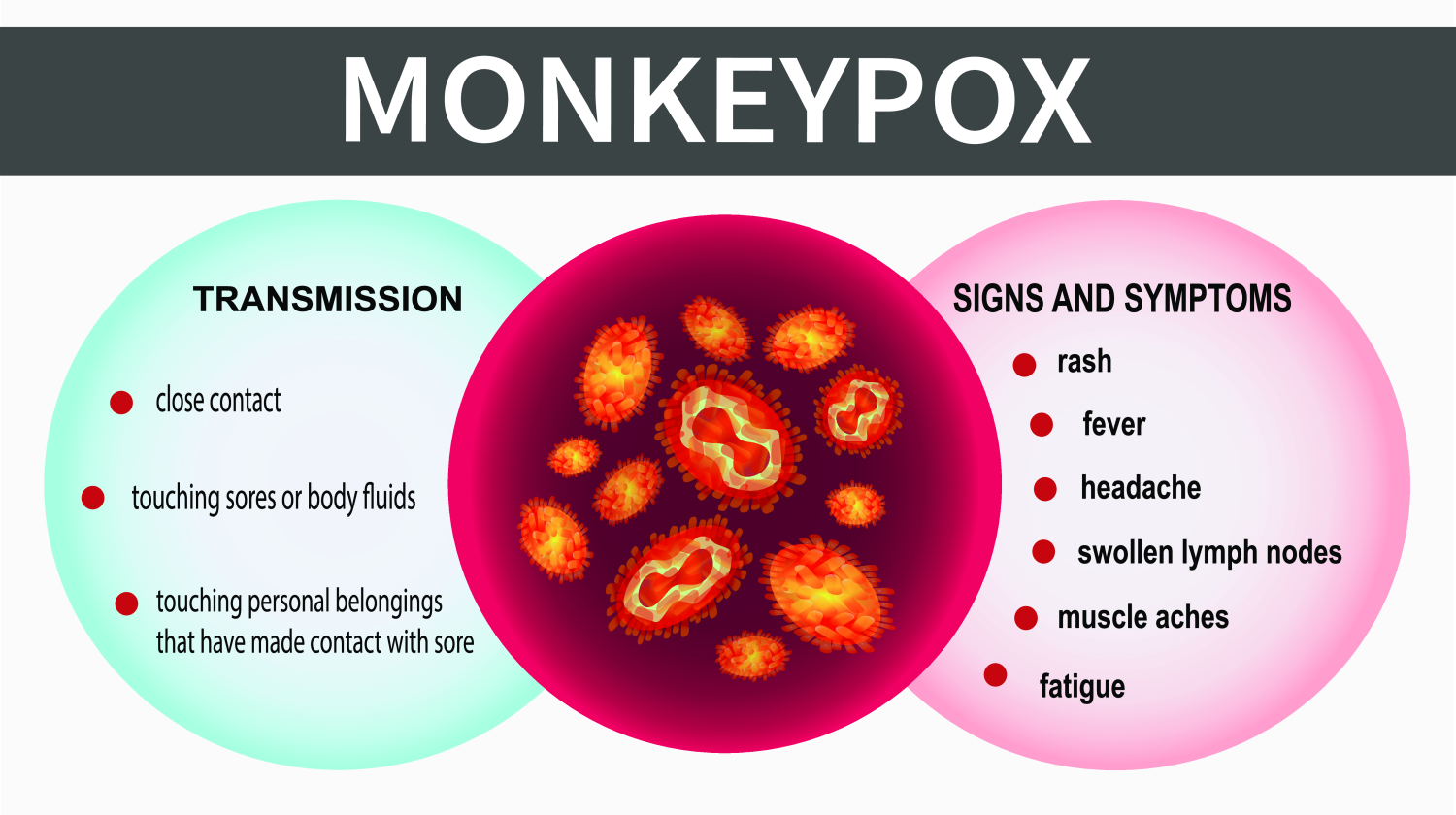Vietnam has not recorded any monkeypox cases as of July 28, but serious fears start to mount after the World Health Organization declared it a global health emergency last week.
Latest WHO data show that between January 1 and July 20, nearly 15,000 cases of monkeypox have been reported in 72 countries and countries in all six regions. Considering the significant increase from only 3,000 cases in May, the WHO said monkeypox has now become a global concern.
Thailand has already logged its first monkeypox case — a Nigerian tourist who fled to neighboring Cambodia after he was found to have the disease before being detained there.
Monkeypox, a viral zoonotic disease, is usually a self-limited disease with symptoms lasting from two to four weeks. It is transmitted to humans through close contact with an infected person or animal (through lesions, body fluids, or respiratory droplets), or with material contaminated with the virus.
Infected persons will experience fever, intense headache, back pain, rashes, and swollen lymph nodes, which may lead to a range of medical complications.

For countries that have yet to report any monkeypox cases like Vietnam, the health organization recommends activating inter-sectoral coordination mechanisms to enhance response readiness.
Dr. Socorro Escalante, acting WHO Representative in Vietnam, told local media earlier this week that WHO is helping the national government to build temporary expertise guidelines in the field of laboratory monitoring and testing, as well as in conducting activities related to temporary rapid response, clinical management and infection control for monkeypox.
Dr. Socorro highlighted the importance of raising public awareness of the transmission of monkeypox, including how to identify signs and symptoms and immediate protection measures.
She further pointed out that strengthening the monitoring system of people coming into the country is a necessary step to prevent the disease from entering the Vietnamese borders and spreading into the community.
The WHO representative, however, said there is no need to apply restriction measures related to international travel of specific groups or the general population yet.
Ho Chi Minh City, home to the busiest international airport in Vietnam, sent a proposal to the Ministry of Health on Wednesday to reintroduce health declaration policies to all people arriving via Tan Son Nhat Airport.

According to a report by VnExpress, the city wants entrants to fill out a questionnaire to indicate whether or not the person has had contact with a monkeypox patient in the past 21 days, or has signs of fever or swollen nodes, or rash.
Those who show symptoms or have been in close contact with monkeypox-infected patients will have to be quarantined for further tests.
Community-based health organizations in HCMC have already been advised to launch communications campaigns and to conduct fast contact tracing should there be a suspected case.
Vietnam already started tightening entry measures at border gates in May. Localities were urged to actively monitor and detect suspected cases, especially those returning from countries that have seen monkeypox infections.
WHO epidemiologist Do Hong Hien said at a virtual meeting over the weekend that “it’s only a matter of time” before monkeypox enters Vietnam, especially as traveling in and out of Vietnam has already become “easy and convenient.”
Vietnam has already scrapped the health declaration for COVID-19 to facilitate the fast recovery of inbound tourism. People coming to Vietnam only need valid visas to be allowed entry. Even COVID-19 certificates and proof of a negative coronavirus test requirements have already been removed since May.
The risk of the disease entering the country is very high, Hien said.



